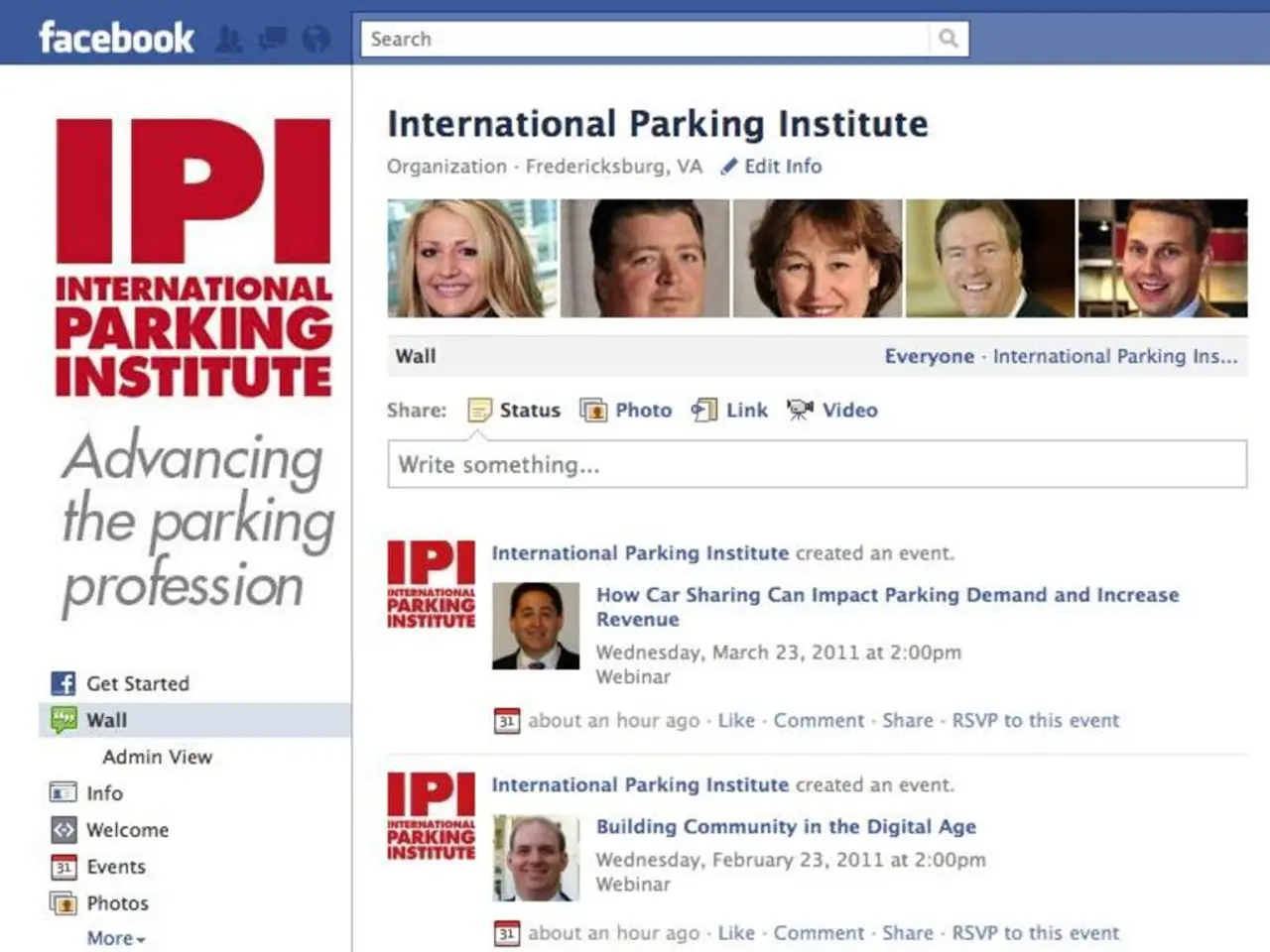In the realm of job hunting, it's essential to be aware of social media scrutiny during the application process
In today's digital age, social media has become an integral part of the pre-employment screening process. Employers are increasingly using social media platforms to gain a holistic understanding of job candidates, focusing on cultural fit, risk mitigation, and verification of personal and professional traits.
Before job hunting, it's essential to address any old or abandoned social accounts from one's younger days, or duplicate accounts set up by others, as these could potentially harm one's chances of getting hired. Engaging with appropriate content and people on social media can, however, reflect positively on a candidate's character.
Employers are prohibited from checking a candidate's social profiles to find protected class information, such as race, religion, sexual orientation, citizenship, disabilities, and other sensitive information. Social media checks are treated like any other employee background screening, subject to state and federal regulations in the U.S.
Regularly screening one's digital presence can help eliminate risks that could jeopardize career prospects. Employers may gain insights into a candidate's work history, skills, strengths, interests, values, and more through proper social media screening. They look for posts, comments, and interactions that reveal professionalism, communication style, alignment with company values, objectionable behavior, and potential legal or reputational risks.
Organizations often check LinkedIn, Facebook, Instagram, TikTok, YouTube, and other platforms during social screenings. On LinkedIn, employers focus on a candidate's work history, skills, certifications, licenses, awards, honors, education-related details, and recommendations. Hiring managers pay attention to posts, comments, likes, reshares, followers, and other activities on social platforms.
A smartly managed social presence can potentially boost a candidate's chances of getting hired. Creating a complete, impactful profile on these platforms can help present personal interests positively to potential employers. A certain level of professionalism and depth in language can work to a candidate's advantage during pre-employment screenings.
Being authentic and true to oneself can help build a real community of followers and potentially improve chances of getting hired. However, it's crucial to avoid sensitive topics like religion and politics, and instead, focus on promoting strengths and interests.
Running a name search on Google can help identify what a potential employer might uncover during a pre-employment screening. Employers examine a candidate's online presence as part of their hiring process, and a well-managed digital footprint can significantly influence hiring decisions. Over half of employers reportedly decide against hiring candidates due to findings on social media.
In summary, social media background checks play a crucial role in today's pre-employment screening process. By maintaining a professional and positive online presence, job seekers can increase their chances of making a favourable impression on potential employers.
- In today's digital age, social media platforms like LinkedIn, Facebook, Instagram, TikTok, YouTube, and others have become an essential part of the pre-employment screening process for employers, who focus on understanding cultural fit, risk mitigation, and verifying personal and professional traits.
- Before job hunting, it's essential for individuals to ensure their social media accounts are clean and appropriate, eliminating any old, abandoned, or duplicate accounts, as these could potentially harm chances of getting hired.
- Employers are prohibited from checking a candidate's social profiles to find protected class information such as race, religion, sexual orientation, citizenship, disabilities, and other sensitive information, but they look for posts, comments, and interactions that reveal professionalism, communication style, alignment with company values, objectionable behavior, and potential legal or reputational risks.
- A well-managed digital footprint that showcases a job candidate's work history, skills, strengths, interests, values, and more through social media can significantly influence hiring decisions, making it crucial for individuals to engage with appropriate content and people on these platforms.
- Creating a complete, impactful profile on social media can help present personal interests positively to potential employers, while maintaining a certain level of professionalism and depth in language can work to one's advantage during pre-employment screenings.
- On platforms like LinkedIn, employers focus on a candidate's work history, skills, certifications, licenses, awards, honors, education-related details, and recommendations, paying attention to posts, comments, likes, reshares, followers, and other activities. Being authentic and true to oneself can help build a real community of followers and potentially improve chances of getting hired.




